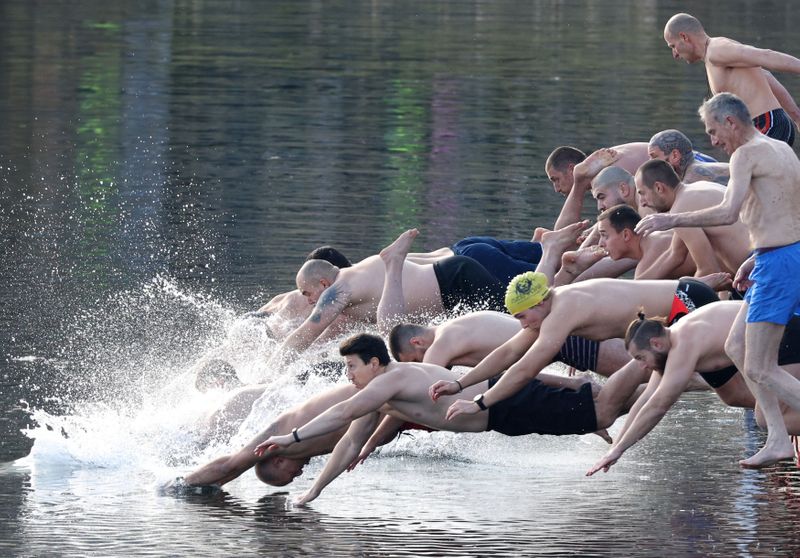SOFIA (Reuters) – Dozens of Bulgarian men danced and sang in the cold waters of the Tundzha river in the central Bulgarian town of Kalofer to mark the Christian holiday of Epiphany on Wednesday, ignoring curbs imposed to stem the spread of the coronavirus.
In a popular ritual, Orthodox priests cast a crucifix into a lake or river, and it is believed that the person who retrieves it will be freed from evil spirits and will be healthy through the year.
Despite calls from authorities to cancel the celebration, about 70 men from Kalofer took part in the ritual, while dozens gathered along the river banks to watch it.
“We tried… not to have it, but there was no way. Even if we did not help them, they would have done it anyways,” said Kalofer Mayor Rumen Stoyanov. “This is an important event for the community… We tried to limit the access, but we could not.”
After the crucifix was recovered, the men put their arms around each other’s shoulders, sang and danced in a circle to music played on drums and bagpipes.
The event in Kalofer sparked heated debates on social networks, where some supported it while others called for the men and the town to be fined for breaking rules they fear may fuel coronavirus infections.
Christians in Greece also defied bans on public gatherings to mark one of the most important religious days in the Eastern Orthodox Church commemorating the baptism of Chirst and the revelation of the Holy Trinity.
Bulgaria, which ranks second in number of deaths per capita from COVID-19 in the European Union, managed to limit the surge in new infections after closing schools, restaurants and banning large public gatherings since late November.
On Wednesday, the Balkan country reported 1,310 new cases, bringing the total to 205,390, including 7,902 deaths.
(Reporting by Tsvetelia Tsolova; editing by Emelia Sithole-Matarise)





















